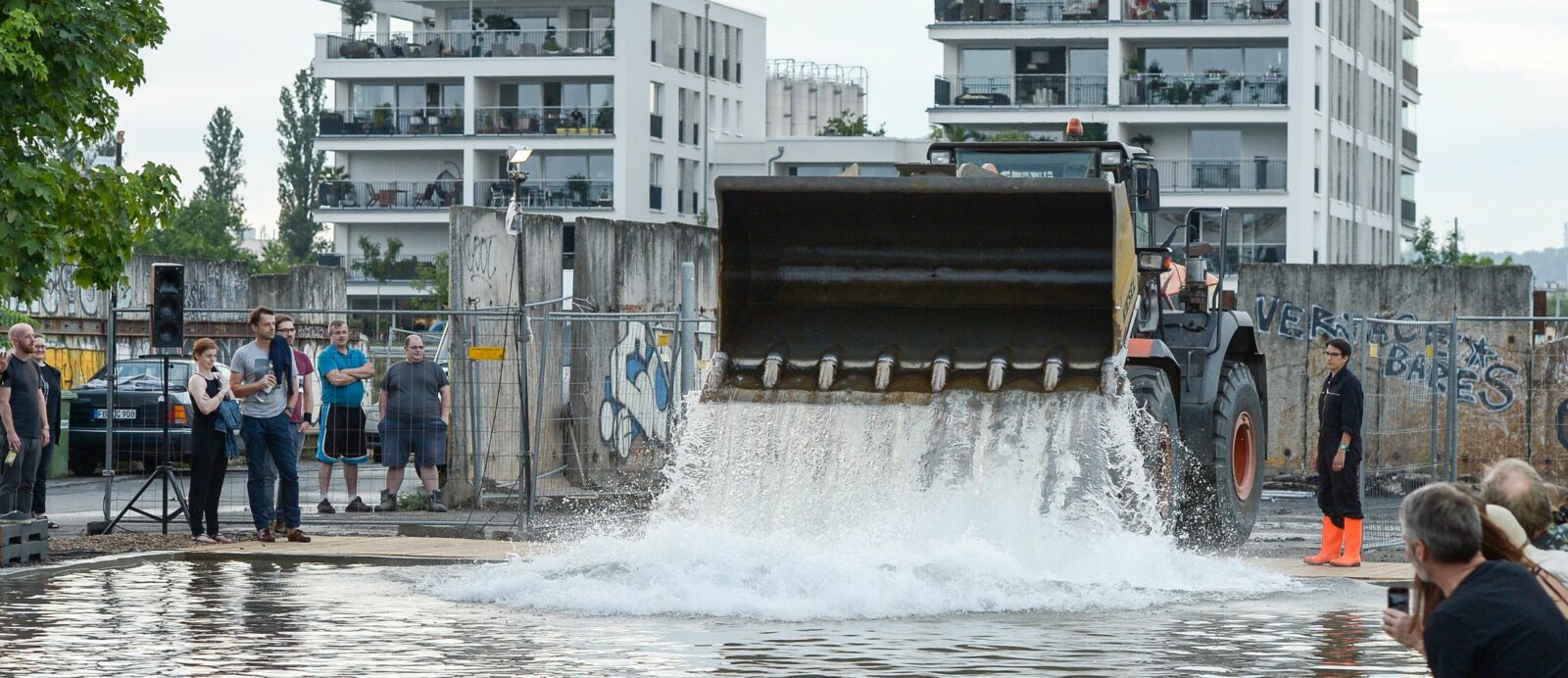This Dramaturgy Database reflects our ongoing research of dramaturgy at Utrecht University. The database consists of (full text) interviews with Dutch and Flemish dramaturges, essays and reports on dramaturgy seminars and other documents that show how (Dutch) dramaturgy has developed in the past decennia.
A dramaturg at work (in orange boots).
Courtesy to dramaturgs Anna Wagner and Nele Beinborn (Kunstlerhaus Mousonturm), photo Gabriel Poblete
This picture perfectly captures the work of a dramaturg, which is strongly characterized by flexibility. As Bojana Kunst notes, ‘as a participant in the process, the dramaturg can occupy a variety of roles: those of practical dramaturg, producer, festival director, stage manager, writer, journalist, teacher, workshop leader, coach, lecturer, academic, artist, dancer, production network member, cultural politics advisor, mentor, friend, compass, memory, fellow traveller, mediator, psychologist. The complexity of the dramaturg’s profession – the affective ability to move between theoretical reflection and practical knowledge, to be an external eye and an involved participant at the same time – is often too hastily reduced to a sort of aesthetic elusiveness.’
Bojana Kunst, ‘The Economy of Proximity: Dramaturgical Work in Contemporary Dance.’ Performance Research 14.3 (September 2009): 81-88.
Search the database
You can search the database for full-text interviews, annotated titles, using the free search field below, or start with an empty search query.
Sneak Preview
Dramaturgie in het amusementstheater
In dit artikel vertelt André Veltkamp over zijn ervaringen als dramaturg binnen het amusementstheater. Hierbij gaat hij voornamelijk in op de dramaturgie van kleinkunstvoorstellingen.
Read more
